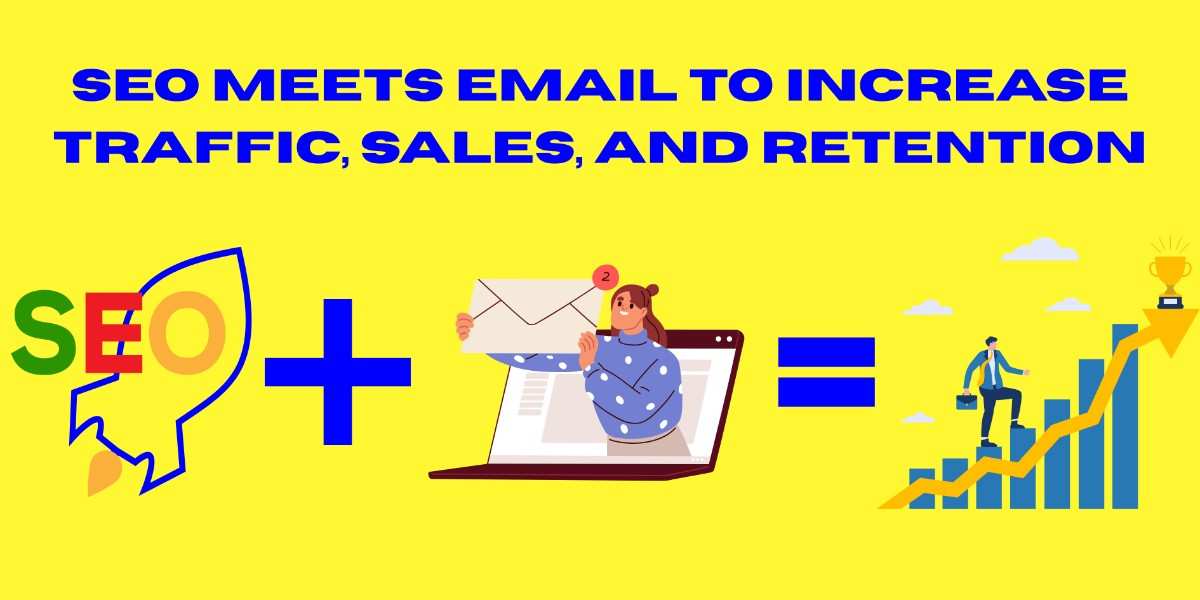SEO and Email Integration Benefits
SEO meets email to increase traffic, sales, and retention

Increase traffic, sales, and customer retention with SEO and email. Get the guide.
In today’s digital era, successful marketing isn’t about relying on a single platform - it’s about seamlessly combining strategies to increase website traffic and reach the right audience. By integrating SEO with email marketing, businesses can not only attract visitors but also boost engagement metrics through well-targeted campaigns.
For example, analyzing keyword trends allows brands to uncover popular topics that resonate with their audience and guide content creation for blogs and newsletters.
Using an SEO email template ( Here is an example of an SEO email template ), marketers can optimize email subject lines and align keyword research to ensure every message is relevant and engaging.
By personalizing and segmenting emails based on user interests, brands can encourage sharing and even turn emails into blog posts, creating a continuous content loop.
This approach not only builds brand authority and trust but also naturally encourages backlinks from other sites, reinforcing both SEO and email efforts.
For instance, a travel company noticing a spike in searches for “budget-friendly holiday deals” can craft a segmented email series highlighting affordable packages, while simultaneously producing blog posts that expand on these offers - ensuring prospects are nurtured and conversions grow steadily.
1. SEO Brings Traffic, Email Marketing Converts It
The first step in digital marketing is visibility. Optimizing your website with SEO helps it achieve superior visibility on Google for the search terms your target audience actively seeks. This brings in a steady stream of organic traffic. But here’s the catch - most visitors don’t convert on their first visit.
That’s where email marketing steps in. By capturing leads through sign-up forms, newsletters, or gated content, you can keep the conversation going. The visitor who found you through SEO can later convert after receiving a well-crafted email series.
2. Keyword Insights Help Personalize Email Campaigns
A major advantage of SEO lies in analyzing search terms. The phrases users type uncover their needs, challenges, and areas of curiosity. These insights can guide and elevate your email marketing approaches.
For example:
- If “affordable digital marketing tools” is a trending keyword, you can build an email campaign around budget-friendly solutions.
- If blog traffic is rising for “best holiday marketing strategies,” your email newsletter can feature exclusive holiday tips.
By matching targeted keywords with your email themes, you create more meaningful campaigns and enhance audience interaction.
3. Email Marketing Data Strengthens SEO Strategy
It’s not a one-way street. Email marketing also helps SEO. Interaction metrics like email open ratios, link-click frequencies, and audience interests reveal which material captures your viewers’ attention most effectively.
For instance:
- If subscribers often click on blogs about “local SEO strategies,” that’s a signal to create more location-based content.
- If a specific product link gets high engagement, you can optimize landing pages around related keywords.
This feedback loop ensures that your SEO content strategy is always aligned with real audience behavior.
4. Improved Customer Journey and Retention
Organic search attracts fresh visitors, while email campaigns cultivate enduring connections with your audience. Together, they cover both acquisition and retention.
- SEO - top-of-funnel awareness.
- Email - mid-to-bottom funnel nurturing.
This combination ensures prospects don’t slip away after a single visit. They get prompt notifications, exclusive deals, and insightful content that gently steer them toward making a purchase.
5. Building Authority and Trust
Google values authority and relevance in its ranking algorithm. When your brand is consistently delivering value through blogs, newsletters, and personalized emails, it creates a positive cycle:
- Subscribers engage more with your content.
- This drives traffic and time-on-site (which helps SEO).
- Higher rankings bring in more organic visitors, who can then be nurtured via email.
Over time, this strengthens brand trust and increases conversion rates.
Conclusion
When integrated, search optimization and email campaigns function as a powerful engine driving customer conversions. SEO brings in quality organic traffic, while email marketing ensures that those visitors don’t disappear after one click. By sharing insights between the two - keywords guiding email campaigns and email engagement shaping SEO strategies - you create a digital marketing system that continuously learns, adapts, and drives results.
Instead of thinking of SEO and email as separate, think of them as partners in your conversion strategy. The real power comes from integration.
How can SEO and email together increase sales and retention?
FAQs
Q1. Why is SEO important for email marketing?
Organic search strategies bring in genuine visitors who can be turned into engaged subscribers. Without SEO, email lists grow slowly.
Q2. Can email marketing improve SEO rankings?
Indirectly, yes. While emails don’t affect rankings directly, higher engagement, repeat visits, and traffic signals can boost SEO performance.
Q3. How can keyword research help in email marketing?
Keywords reveal what users want. By aligning email content with these search trends, campaigns become more relevant and engaging.
Q4. Is it essential to leverage both search optimization and email outreach for maximum impact?
Not mandatory, but highly effective. SEO builds reach, and email builds relationships. Together, they maximize conversions.
Q5. What’s the biggest benefit of combining SEO and email marketing?
The synergy ensures you don’t just attract visitors - you convert them into long-term customers.
Tags: SEO email marketing, boost website traffic, keyword research email campaigns, customer retention strategies, organic traffic conversion, email funnel optimization, digital marketing 2025, brand authority SEO, SEO content strategy, email marketing tips


